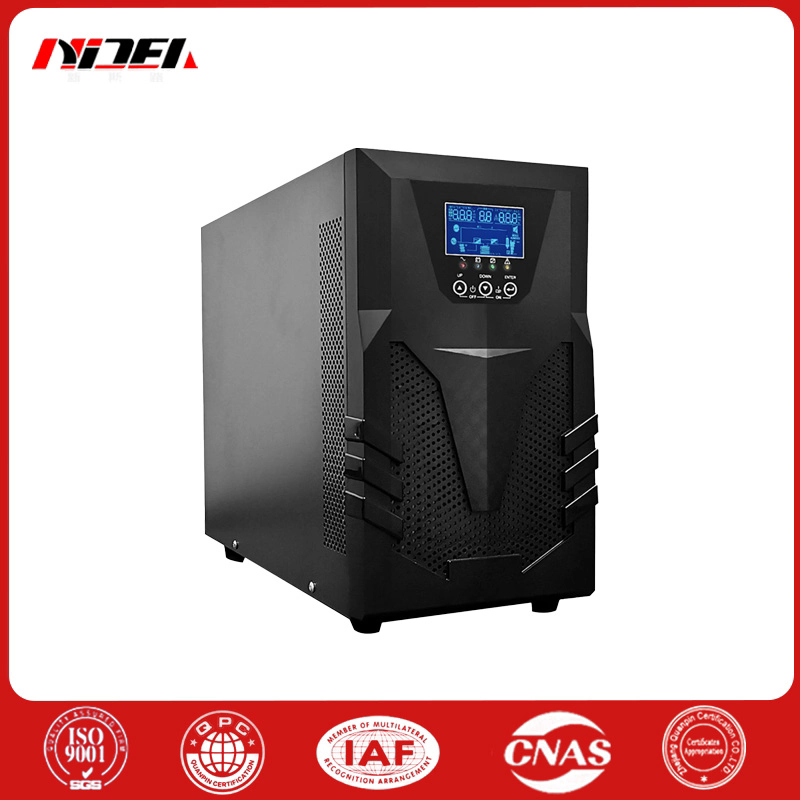Why Is an Uninterruptible Power Supply (UPS) Essential for Your Home or Business?
2024-12-31
In today's world, we rely heavily on electricity for almost every aspect of our daily lives. Whether it's for work, communication, entertainment, or keeping critical systems running, power interruptions can have significant consequences. This is where an Uninterruptible Power Supply (UPS) comes in. But why is a UPS such an essential device, and how can it benefit both homes and businesses? Let's explore the key reasons why you might need a UPS and how it can safeguard your devices and data.
What Is an Uninterruptible Power Supply (UPS)?
An Uninterruptible Power Supply (UPS) is a device that provides backup power when the main power source fails. It works by continuously supplying power to connected devices, such as computers, servers, or medical equipment, using a battery stored inside the unit. The UPS acts as a safety net, ensuring that your devices remain operational during power outages, surges, or voltage drops.
In addition to providing backup power, a UPS also helps regulate voltage and protect sensitive electronic equipment from damage caused by electrical fluctuations.
Why Should You Consider a UPS?
There are several reasons why investing in a UPS is a wise decision for both home and business environments:
1. Prevent Data Loss
One of the most crucial reasons to use a UPS is to prevent data loss during unexpected power outages. For businesses and individuals who work with computers, servers, or any devices that store important data, a sudden shutdown due to power loss can lead to lost work, corrupted files, or worse—irreversible damage to data. A UPS gives you enough time to save your work and shut down devices safely, thus avoiding the risk of data corruption or loss.
2. Protect Sensitive Electronics
Modern electronics, such as computers, televisions, routers, and medical devices, are sensitive to power surges and fluctuations. A UPS provides surge protection, absorbing excess voltage and preventing damage from power spikes that could potentially fry your devices. This is especially important in areas where power surges or brownouts (voltage drops) are frequent.
3. Ensure Business Continuity
For businesses, especially those that rely on servers, workstations, or critical equipment, a UPS is a lifesaver. A sudden power loss can disrupt operations, cause downtime, and lead to lost revenue. With a UPS in place, businesses can continue working during short-term outages or have enough time to back up systems, shut down processes, and prepare for longer interruptions. This helps minimize business interruptions and ensures smooth operations even in the event of power failures.
4. Reduce the Risk of Equipment Damage
Apart from surges, frequent on-and-off power cycles can cause wear and tear on your devices. A UPS offers stable power to your electronics, preventing them from being damaged by abrupt power cuts or unstable voltage. Over time, this can extend the life of your equipment, saving you money on repairs and replacements.
5. Improve Power Quality and Stability
UPS units often come with voltage regulation features that maintain a consistent power supply, even when the mains voltage fluctuates. This helps prevent issues like flickering screens, sudden reboots, or the failure of power-hungry devices. It provides a more stable environment for your devices, which is particularly critical for sensitive machinery and equipment that rely on consistent power.
How Does a UPS Work?
A UPS works by providing a constant flow of electricity through an internal battery that is charged while the main power supply is running. When the power goes out, the UPS seamlessly switches to its battery backup mode, supplying power to your connected devices without any interruption.
There are three common types of UPS systems:
- Offline/Standby UPS: This type of UPS only switches to battery power when it detects a power failure. It is simple and cost-effective for basic home use.
- Line-Interactive UPS: This type offers more advanced features, including voltage regulation. It is commonly used in home and small office environments.
- Online UPS: This type is designed for mission-critical applications. It provides the highest level of protection by constantly running devices off the battery, ensuring the cleanest and most stable power at all times. It’s typically used for large businesses and data centers.
How Long Does a UPS Provide Power?
The duration for which a UPS can provide backup power depends on the size and capacity of the unit, as well as the power consumption of the devices connected to it. Smaller UPS systems might provide backup power for only a few minutes, enough to save your work and shut down devices. Larger systems, on the other hand, can provide backup for hours, depending on the load.
It’s important to assess the wattage requirements of your devices and choose a UPS that offers enough power to meet those needs for the desired amount of time.
Are There Any Drawbacks to Using a UPS?
While a UPS offers many benefits, there are a few considerations to keep in mind:
1. Cost: High-quality UPS units can be expensive, especially those designed for larger or more power-hungry equipment.
2. Battery Life: The battery inside the UPS requires periodic replacement (usually every 3–5 years) to maintain reliable performance.
3. Limited Backup Time: A UPS is not designed to provide indefinite power during a blackout. It is meant to give you enough time to shut down devices safely or to wait for the return of power.
4. Maintenance: UPS units require regular maintenance, such as checking the battery status and ensuring the unit is functioning properly. Neglecting this can lead to reduced effectiveness or complete failure during an outage.
Conclusion
An Uninterruptible Power Supply (UPS) is an indispensable tool for protecting your electronics and ensuring business continuity during power outages. It offers peace of mind by preventing data loss, reducing equipment damage, and improving power quality. Whether you’re a home user looking to protect your computer and entertainment systems or a business with critical infrastructure, a UPS is an investment that can save you time, money, and headaches in the long run.



